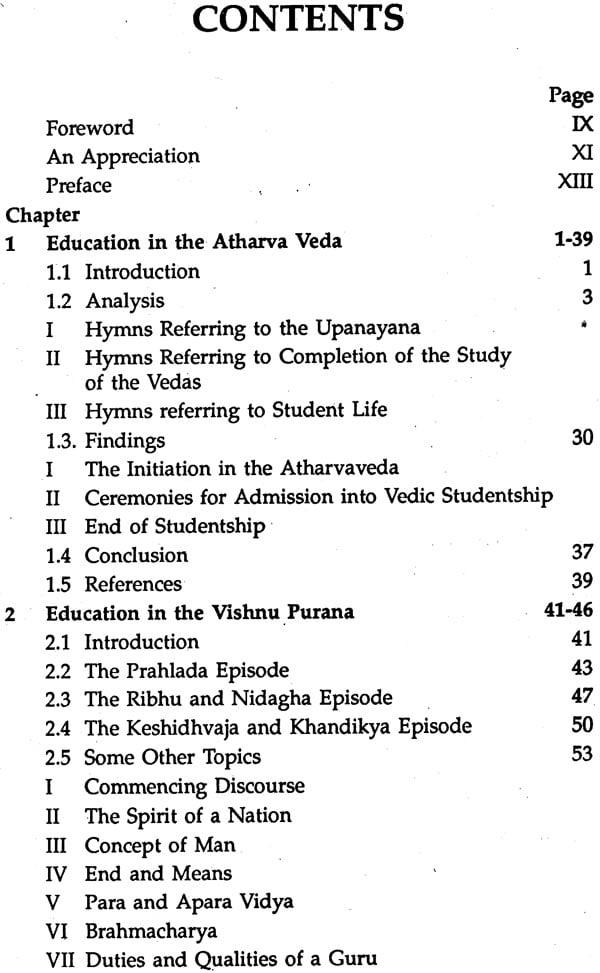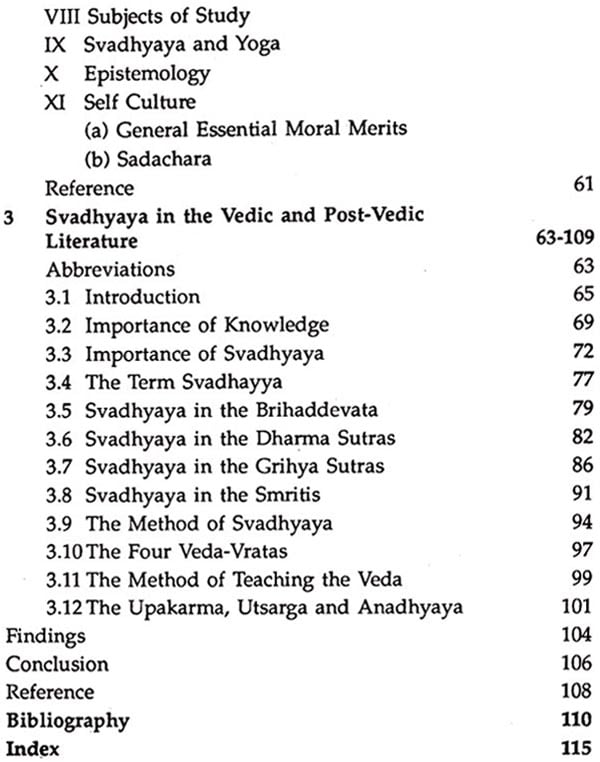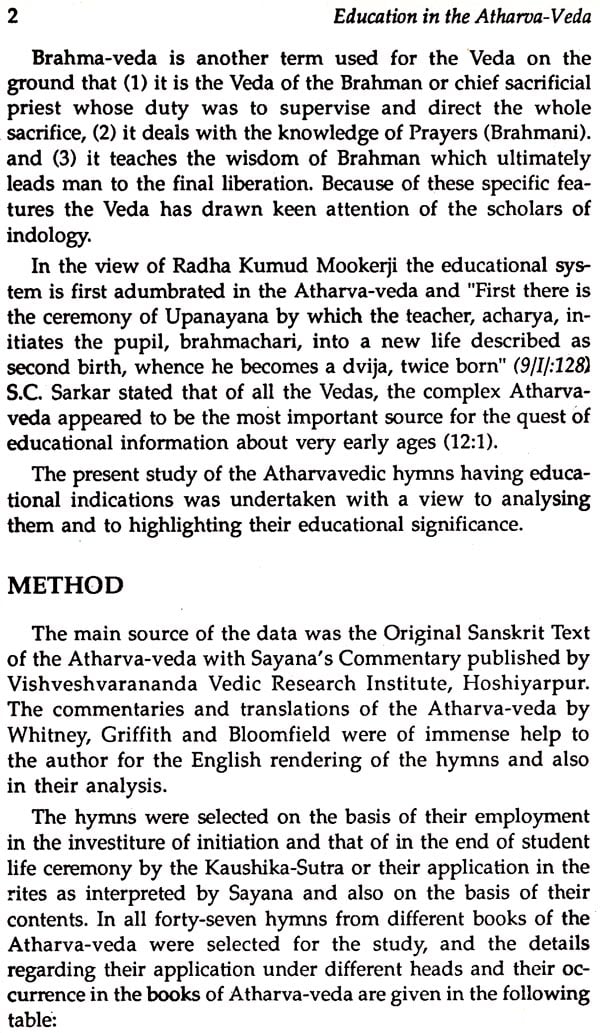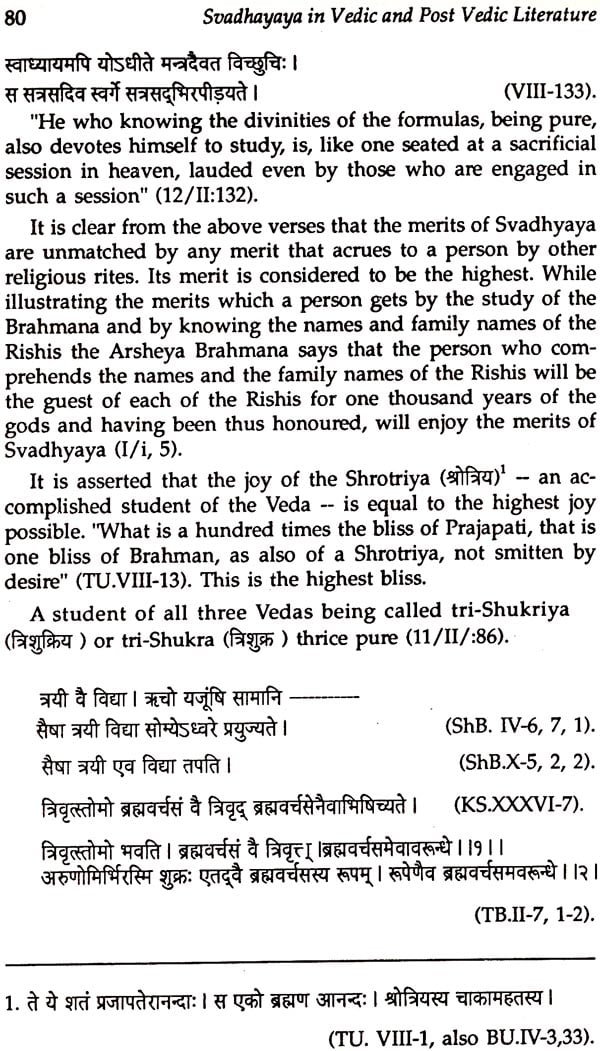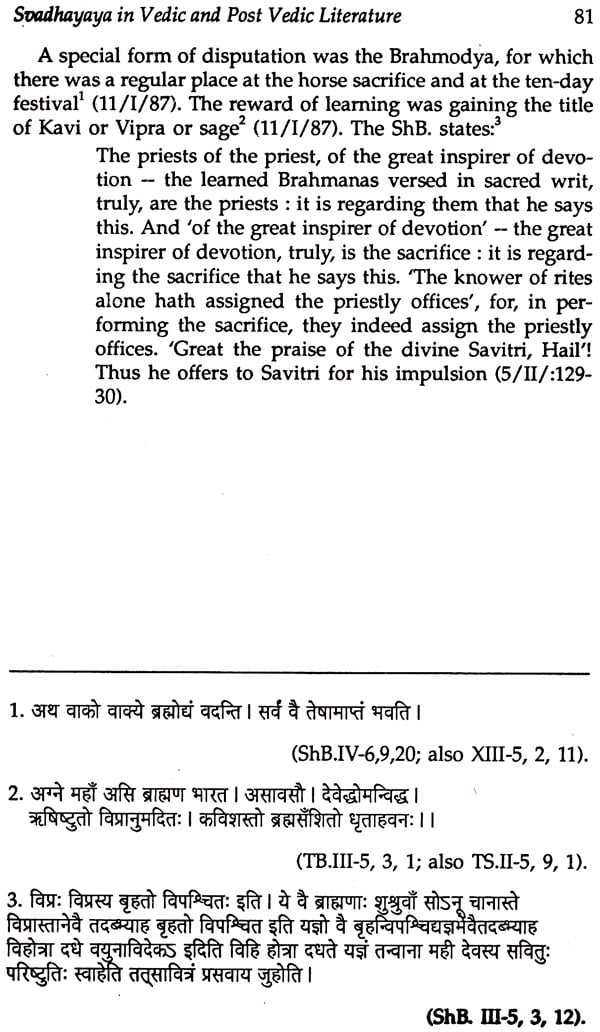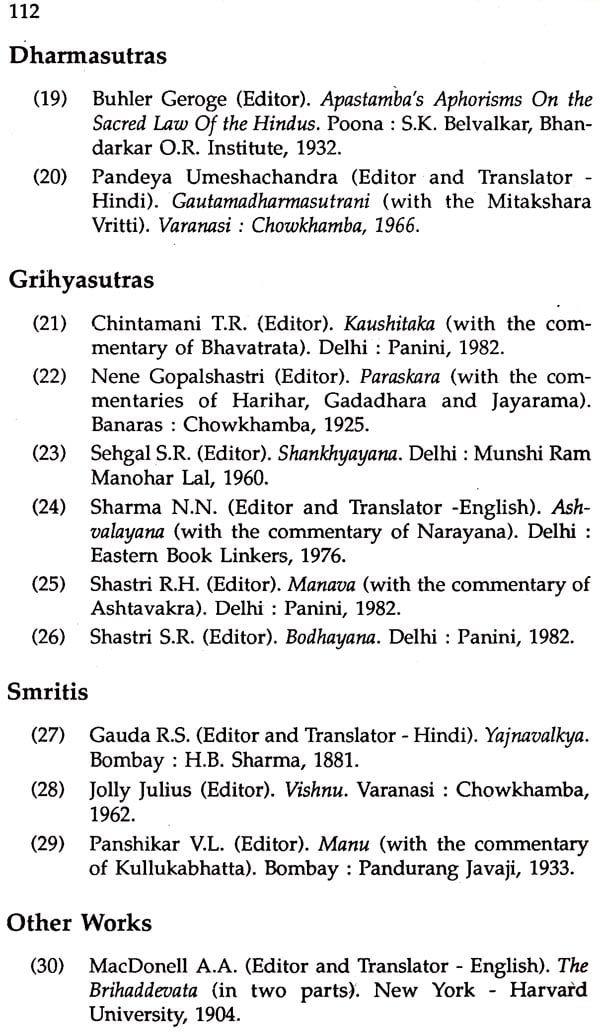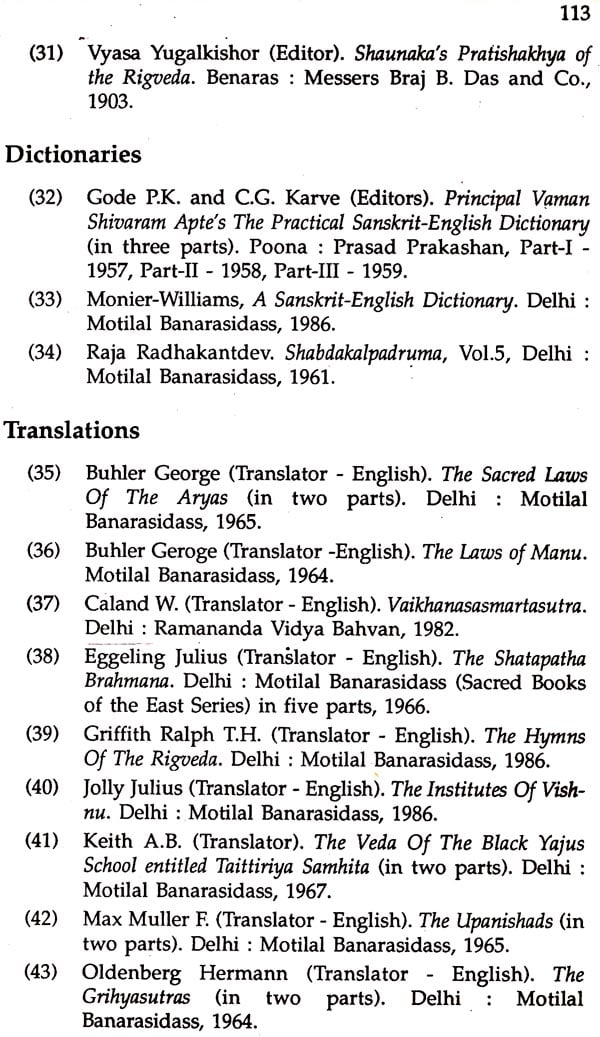
Education In Ancient India (An Old and Rare Book)
Book Specification
| Item Code: | NAS468 |
| Author: | S.M. Rakhe |
| Publisher: | Sri Sadguru Publications |
| Language: | ENGLISH |
| Edition: | 1992 |
| Pages: | 131 |
| Cover: | HARDCOVER |
| Other Details | 9.00 X 5.50 inch |
| Weight | 250 gm |
Book Description
The book contains passages from the scriptures.
It is a pleasant duty of the author to thank all those who have in any way assisted in the production of the present work. I am grateful to Dr. K. G. Desai, Ex. Director, University School of Psychology, Education and Philosophy, Gujarat University, for carefully going through the typescript and making a number of valuable suggestions. I am very much obliged to Prof. R.S. Trivedi, Ex. Vice Chancellor of Bhavnagar University for writing a Forword to this work. I am also indebted to Prof. K.S. Shastri, Ex. Vice Chancellor of Gujarat University for writing appreciation to the monograph - Svadhyaya in the Vedic and Post-Vedic Literature. I am also thankful to the librarians of Gujarat University, Ahmedabad and Government Sanskrit College Library, Indore (M.P.) for thier ready help during the period of my study. I am grateful to Mrs. Indira Chaudhari and Mr. K. K. Solanki for the proof-reading and also for preparing the Index. I amindebted to Indian Books Centre and owe my thanks for their interest in Indian Educational Thought and for consenting to publish the book.
Dr. Rakhe has adopted a scientific technique in the selection and analysis of hymns.
The analysis focuses the relationship between the teacher and the pupil. The teaching teaching continuum has a special meaning. The teacher in the past was more concerned about the well-being and prosperity of his pupil. The Vedic interpretation shows clearly that both the teacher and the pupil, according to Vedic dictates, are the vital components of educational process.
The formal and informal aspect of Vedic education are more important. That the child had to leave his parent's roof and take shelter in his Guru's house is an indication of a formal system. But the pupil's stay at his Guru's residence for the entire period of education includes all types of activities. It was living in a different family. This was an informal mode of teaching. Dr. Rakhe highlights the unique feature of the system. Dr Rakhe has hymn wise shown the functioning of the system.
The Central theme of study in Vishnu Purana is educational practice based on the particular educational philosophy. The bases according to Dr. Rakhe are not religious but moral. The moral norms as accepted by the then society determined the course of educating children and the youth of the times. Dr. Rakhe has selected two episodes, viz., the Prahlad Episode and the episode of Ribhu and Nidagha to focus the teacher-pupil relationship. What is more important in the relationship is the authority of knowledge instead of the mere status-authority. The system as revealed here was rigorous. Education in those days was not a bed of roses. It was full of hard work and rigour. At the same time it was not Spartan in its function.
Dr. Rakhe has only brought the true spirit of ancient Indian educational system to light. The aim of education in those days was self-realization. In the process of self- realization the teacher-Guru, was a mere guide. Ribhu's illustration is an ex-ample of such a guide.
Dr. Rakhe's study of the Vishnu Purana in regard to the then prevailing educational practices will be of an immense value to the present educational practitioners. When the New Educational Policy is stressing value and cultural heritage, the present investigation would provide an interesting reading material in the areas focused in the New Educational Policy and its Action Plan.
